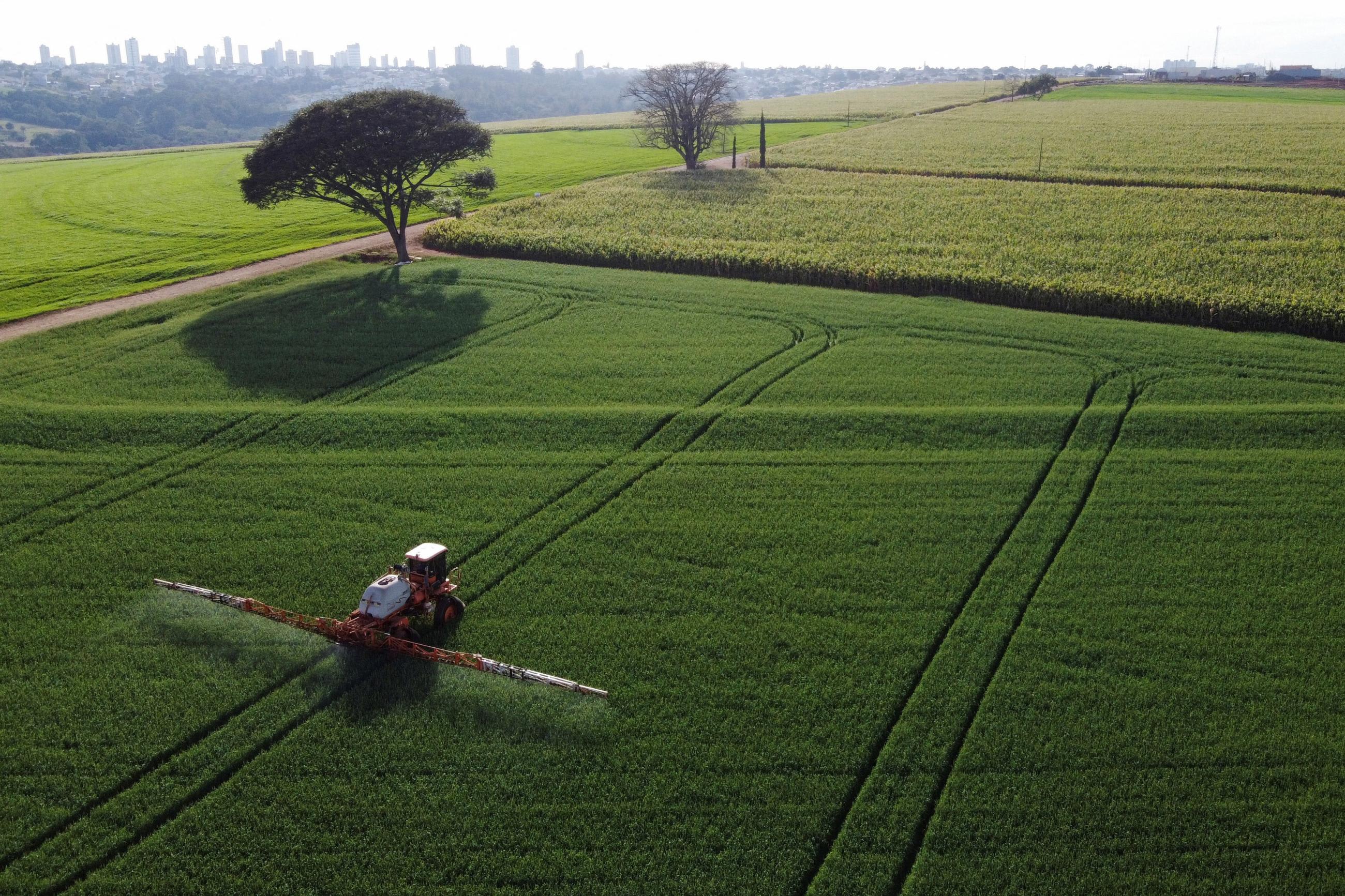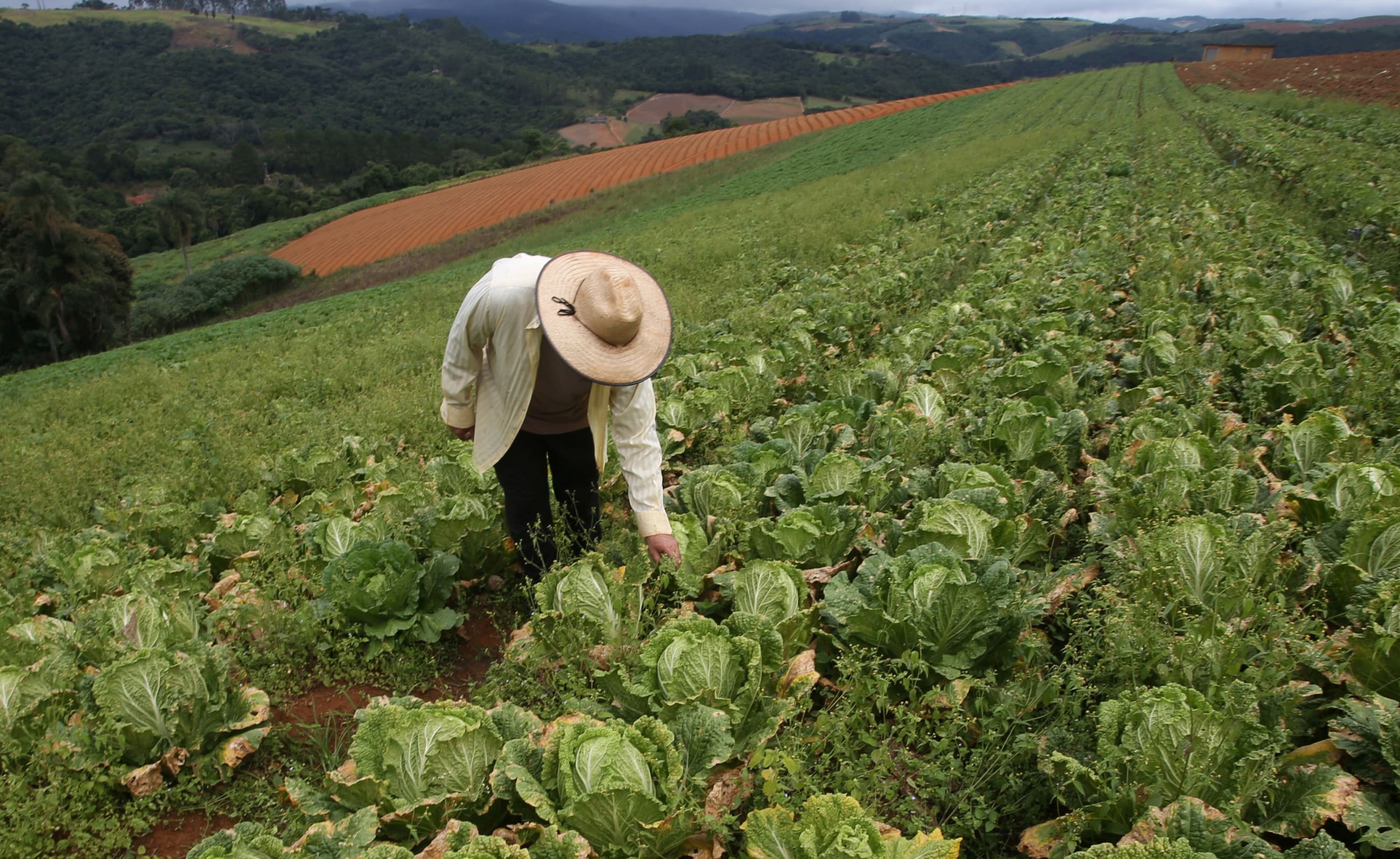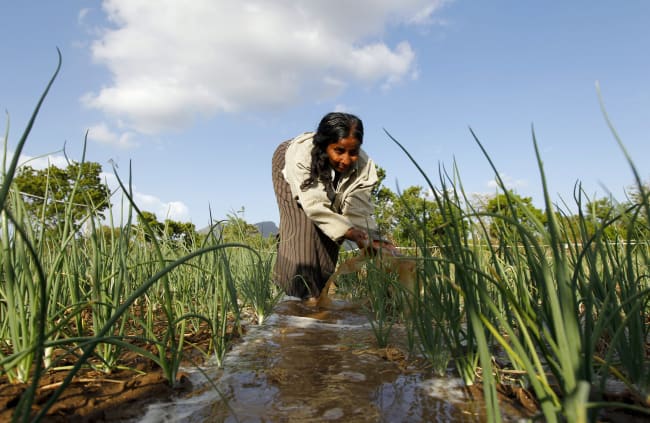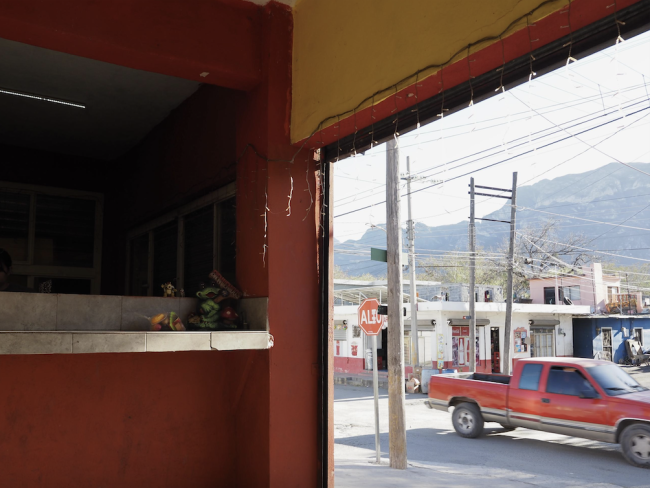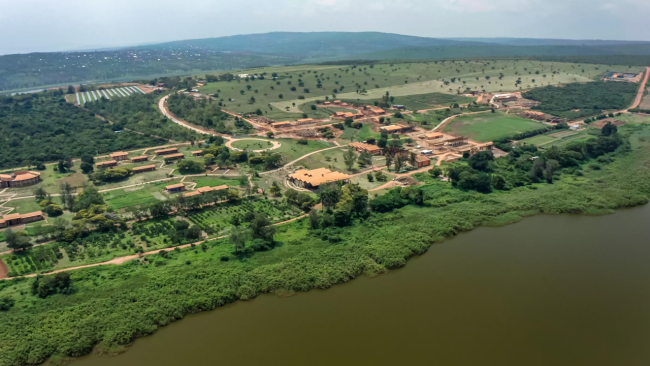Brazil's agribusiness lobby had reason to celebrate on November 28 when the country's Senate approved the long-debated legislation known as the Poison Package—a bill introduced almost a quarter century ago to lift restrictions on pesticides.
If it becomes law, the legislation would not only weaken regulations on the authorization of pesticide use in the country but also fast-track registration of the chemical substances, allowing for temporary approvals before risks are properly reviewed.
The Senate passage is the penultimate hurdle for the measure and came after Senator Tereza Cristina—former minister of agriculture under then President Jair Bolsonaro and well-known for being both from a farm-owning family and a vocal supporter of the bill—requested an expedited vote. The Senate Environmental Commission had reviewed the legislation, but the accelerated vote meant that other thematic commissions were left out.
All the bill requires now is ratification by President Luiz Inácio Lula da Silva to mark a memorable victory for the powerful agribusiness lobby.
Although the current law, implemented in 1989, requires the participation of health and environment agencies in determining which pesticides are safe for use, the Poison Package would pass that task on to the Ministry of Agriculture, which tends to be controlled by the agribusiness lobby.
Health and environmental organizations describe the result of the Senate vote as a giant step in the wrong direction
Health and environmental organizations such as Human Rights Watch and Greenpeace describe the result of the Senate vote as a giant step in the wrong direction for the protection of Brazil's vast biodiversity and the well-being of its population. Those groups have been calling for the bill's rejection since then Senator Blairo Maggi first put it on the agenda in 1999. Maggi would later become minister of agriculture and is known across the country as the Soy King for being one of the country's biggest soy producers. Despite the bill's having been updated over the years, Human Rights Watch notes that "many of the serious concerns raised by experts remain."
The UN Office of the High Commissioner for Human Rights has been vocal in its opposition of the bill, saying that the policy would "mark a monumental setback for human rights in the country."
"It is a myth that pesticides are necessary to feed the world, and that the adverse effects of pesticides on health and biodiversity are somehow a cost that modern society has to bear," the office stated in October 2022. "Pesticides present serious risks for human health and environment at a local and global scale."
Under Brazil's current laws, pesticides with elements considered carcinogenic, teratogenic, mutagenic, disruptive to the endocrine system, or that pose risks to the reproductive system cannot be registered. If the Poison Package were ratified, pesticides would only be prohibited when there is a "scientifically established unacceptable risk," a definition experts say is wide open for interpretation.
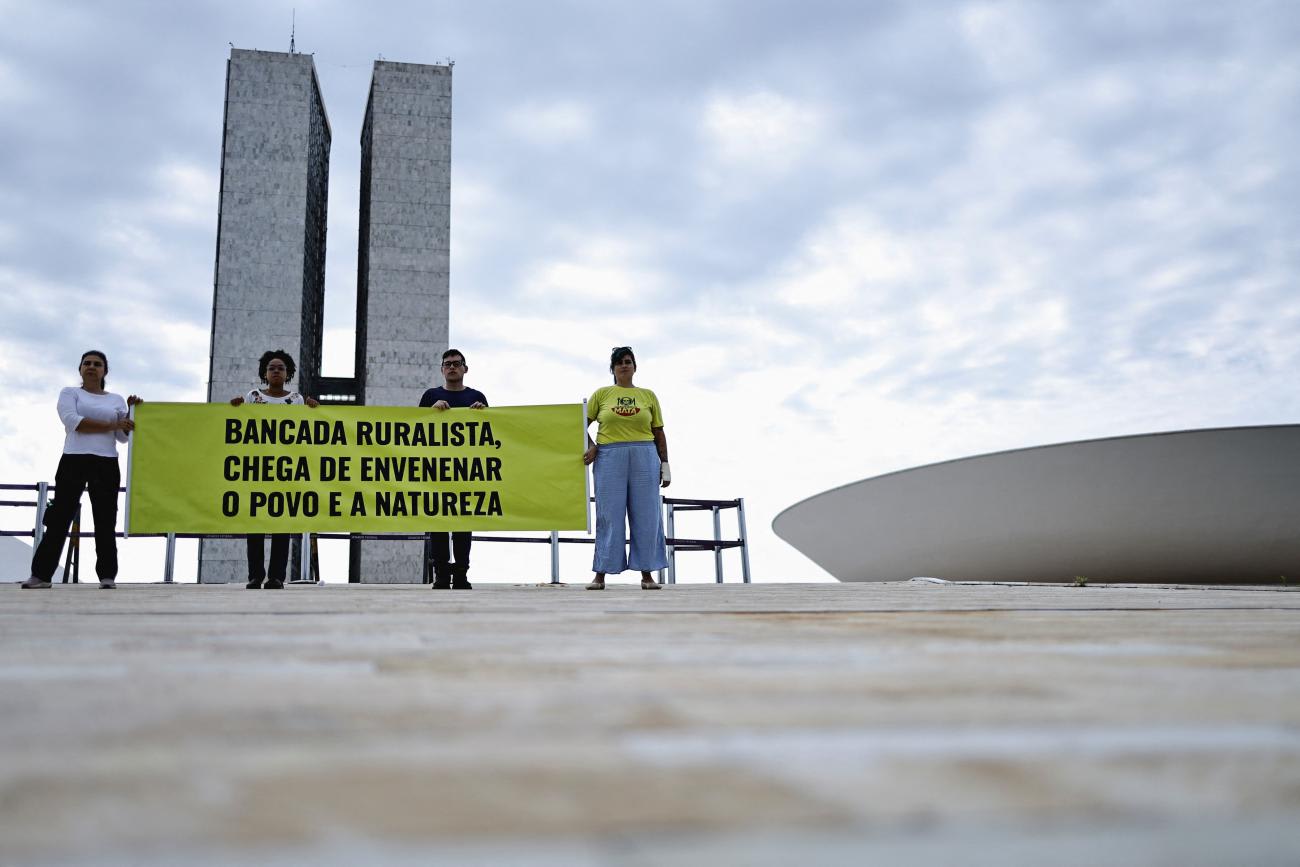
Fiocruz, a scientific institution in Rio de Janeiro that works with research and development in biological sciences and is lauded for its work in public health, launched a working group in February 2022 to monitor and propose public policies that protect human, animal, and environmental health from the effects of pesticides. A statement Fiocruz sent to the Senate in October listed several concerns with the bill, highlighting in particular the risk of allowing cancer-causing chemicals to be used on crops.
"According to scientific literature on the subject, there is no dose-response relationship for carcinogenic products," Fiocruz wrote. "Small doses can cause irreversible damage to people's health."
Even without the proposed changes to its legislation, Brazil is already the biggest consumer of pesticides in the world, importing more pesticides than any other country, nearly half of which are classified as highly hazardous by the international advocacy organization Pesticide Action Network.
A recent study published in the National Academy of Sciences journal Environmental Sciences showed a "statistically significant increase in pediatric leukemia following expanded local soy production" in the Brazilian Amazon and Cerrado regions. A review of 116 scientific articles published between 2011 and 2017 looking at the effects of pesticides on human and environmental health in Brazil listed cancer as one of the most cited concerns.
Small doses can cause irreversible damage to people's health.
Fiocruz
Many of the pesticides in use in Brazil have been banned in countries across the EU because of their health risks, which include cancer, hormonal conditions, infertility, miscarriage, negative impacts on fetal development, neurological diseases, and death.
The most used pesticide in Brazil, glyphosate, which has an active ingredient the World Health Organization classified as "probably carcinogenic" in 2015, has been linked to 503 child deaths in Brazil per year, according to a study by researchers at Princeton University, the Getulio Vargas Foundation, and Insper.
The chemical is banned for household use in France, the Netherlands, and Belgium. Germany has also banned the pesticide for use in public spaces and is pushing to ban it entirely. Vietnam has fully banned the use of glyphosate, and Mexico has pledged to prohibit its use by 2024.
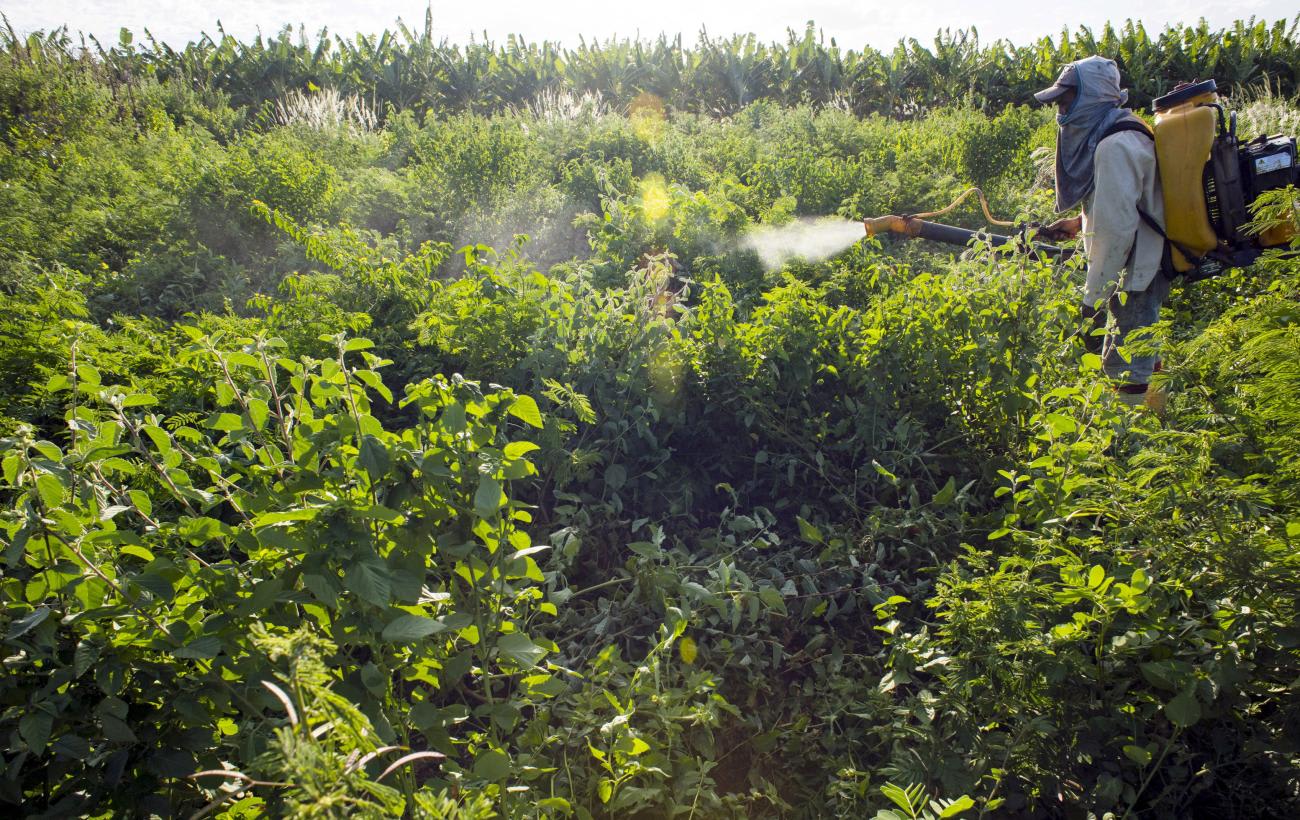
Although the Poison Package would most directly affect those living in Brazil and working in its fields, it would also pose a danger to any country that imports its products, including the United States. Brazil is an agricultural export powerhouse, sending its harvests worldwide.
Brazil's agricultural products are among the top three imports by the United States and are common in the EU as well. Without realizing it, some of the EU's countries end up consuming pesticides they have banned from their own soil. Almost half of the pesticides imported to Brazil are used on soy crops, and nearly half of the EU's soy imports in 2022—more than 150 million kilograms—came from Brazil.
If the Poison Package is sanctioned by President Lula, it would mean that even more chemicals deemed highly hazardous could flood Brazil's substantial pesticide market and in turn its fields, with ease and little oversight.
Its transformation from bill to law would leave the country's agribusiness lobby rejoicing and its health and environmental groups weeping.
